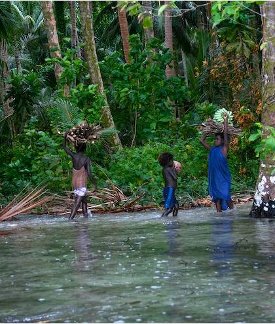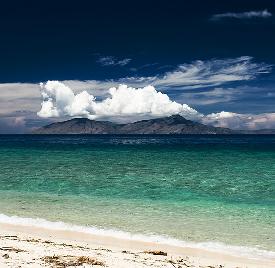

Deliberative democracy
About the National Peoples Assembly 2008

Download the Citizens' Panel Report from The National People's Assembly on sea level rise and population displacement in the Asia Pacific region
A detailed report with recommendations for the federal government

A detailed report with recommendations for the federal government

2008 National People's Assembly - Democracy in action
In Europe and North America, citizen's juries pay influential
roles in informing public policy debates especially where
controversial science is involved.
In 2008 Green Cross adopted a Scandinavian Consensus Conference model to enable a group
of ordinary Australians to advise our Federal government about
humanitarian climate adaptation policy. The 2008 National People's
Assembly was supported by a Steering Committee of academic, science,
business and community development experts. To learn more about the
topics covered and recommendations made - keep reading.
The Issues
Communities in developing countries across Asia Pacific, Africa
and South America need to build their resilience to shifting
climatic patterns and other environmental stresses. Just like
Australia, less developed nations are likely to confront more
intense bushfire, flood, cyclone and drought conditions based on
predictions of climate scientists.
Unlike Australia, developing countries have scarce funds to
support activities that build local community resilience.
Real and present risks of climate change include gradually rising
sea-levels, more intense extreme events such as cyclones and
drought, freshwater shortages and contamination, depleted
fisheries, spreading water-borne diseases, species extinction and
crucial agricultural implications for food security.
We must boost the ability of social and ecological systems to
adapt to climate change because they are our community
lifeline.
Green Cross works in the interface between humanitarian and
environmental stresses. Our international offices and partners
support communities in Asia, Africa, South America and Eastern
Europe that lack clean drinking water and seek to repair and
replenish their local environments.
In Australia we work to influence our overseas Aid program and we
encourage Australian students to support Green Cross and partner
projects in developing countries such as Green Cross Ghana's clean
water for green schools effort.
Shaping Australia's overseas aid program
Since we opened our offices in late 2007, Green Cross Australia
has addressed a pressing local concern: How should Australia
respond to the humanitarian challenges posed by climate change
impacts on our Asia Pacific neighbors? We chose a democratic method
to address this question by convening a deliberative democracy
project in 2008 called "The National People's Assembly"
The project used a Danish model of deliberative democracy similar to
a "citizen's jury", but with extensive briefing with dozens of
eminent experts over a three month period culminating in a deliberation which input from sixteen leading
academic, business and community leaders. Climate Change
Minister Penny Wong welcomed their recommendations via
video, sending Howard Bamsey, Australia's Envoy on Climate
Change to witness deliberations and receive recommendations.
|
National People's Assembly for Climate Adaptation Action |
|
The panel advocates that Australia must prioritise adaptation research and planning in areas that address the topics of water and food security, biodiversity, conservation and health. Research and planning should be comprehensive, locally based, and include local peoples in areas throughout the region, and must incorporate all of the principles outlined above.
We recommend the development of capacity building relationships across the region that include women, indigenous people, young people, faith-based groups, and local and international NGOs. This can be done through student exchange and volunteer programs, climate change adaptation and disaster training, agricultural demonstrations, professional development and resource and technology sharing.
We recommend that Australia play a significant role in assisting communities in the region to plan appropriate sustainable adaptation initiatives and technologies e.g. whole systems analysis. |
In August 2009, we were delighted that Climate Change Minister
Penny Wong and Foreign Affairs Minister Stephen Smith announced
that the "International Climate Change Adaptation Initiative" would
fund $2.7 million in community led adaptation projects for the
Pacific and Timor-Leste. The 2010 Federal budget includes more
funding for regional adaptation. Green Cross has worked hard to
influence these important Aid commitments.
As Green Cross grows in Australia, we aim to support new
initiatives such as our proposed "TLResilience" partnership to
support adaptation efforts in Timor Leste.
We also work to support the World Bank's climate adaptation
program.
In 2010 we will raise funds to support provision of clean water to
students in drought affected areas of Ghana as part of our
commitment to climate resilience in the developing world.
This work is led by Green Cross International and Green Cross
Ghana, and will link into our green education and green schools
activities in Australia. We will encourage Australian students and
schools to support communities in Ghana to make their schools more
healthy and sustainable.
Copyright © Green Cross Australia | Terms & Conditions | Privacy Policy
web design brisbane :: (zero)seven
